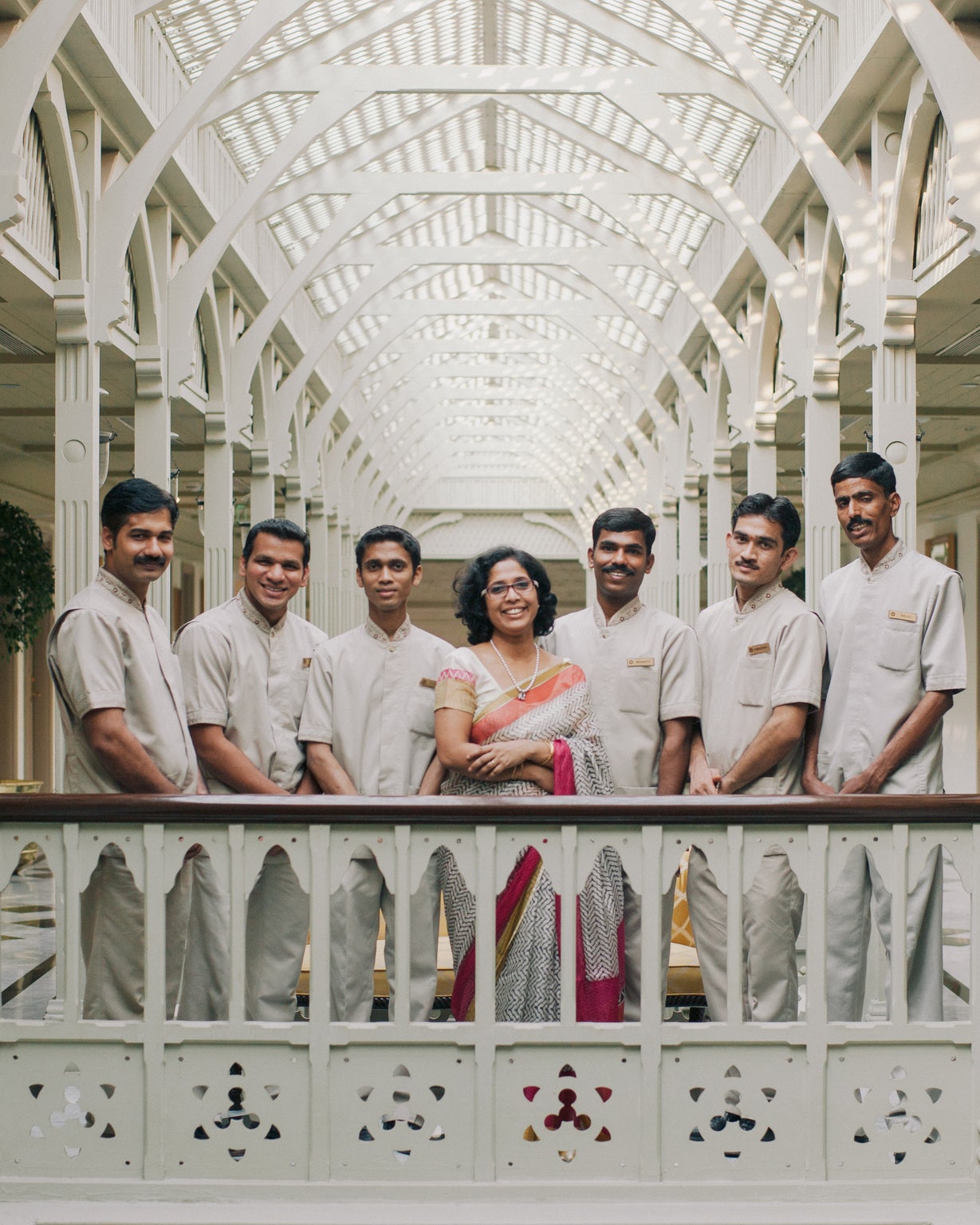Grace Dent on TV: meet the room-boys who scrub baths all day but don’t have one at home
This week Grace watched... Hotel India, BBC2

I could watch documentaries about the hospitality industry – such as this week’s Hotel India, the first of a four part series about the Taj Mahal Palace, Mumbai – all day long.
There is beauty in a lovingly re-stocked minibar, in a perfectly puffed pillow from an extensive pillow menu, or in a bath towel folded into a swan shape and left on a bed as a pointless yet affable treat.
Entering a fine hotel should be like entering an idyllic microcosm, where the plug points are perfectly situated, the hot shower never runs tepid and the alert stranger taking room-service orders sounds genuinely thrilled, nay honoured, to receive your 2am club-sandwich order. In hotel world the devil may well be in the detail, but at the Taj Mahal Palace Hotel in Mumbai they adhere to the gorgeously civilised Hindu belief, “the guest is god”. This leads to an awful lot of diligent hoovering, cobweb vigilance, bathroom-tile polishing and miscellaneous items being transferred on trays using tongs.
Guests in the £9,000-per-night suites receive more other-worldly treatment still. I’m not sure that arriving at the check-in desk of a Premier Inn declaring oneself a visiting deity will have the same effect. Not even if one is a close personal friend of Lenny Henry.
Inside the Taj Mahal Palace, rock stars, Bollywood idols, presidents and common-or-garden billionaires bumble between tiffin tin, jal-tarang performance and pehlwan malish massage. A legion of devoted room-boys, butlers, housekeepers and, of course, Mr Chaskar the minibar man – who has given the Taj Mahal 42 years of service – act as a buffer between VIP and the real world with all its petty woes. Oil trader Captain Bhasin hosts lavish cocktail parties in his suite for his super-wealthy chums, organised with military precision by his butler Melville. Bhasin is very precious about the type of nuts served at these parties and insists on his favourite ones being imported from Dubai. This sort of thing makes for some very tense nut-bowl-replenishing manoeuvres, especially when the cocktail-party guests point out that the nuts are bloody awful and the hotel is not allowed to admit that they are Bhasin’s special request as this would embarrass Bhasin, and he should never ever be embarrassed. If this anecdote is making your teeth itch, I don’t think you’d be a very good addition to the team at the Taj Mahal Palace.
Of course, one of the dilemmas of any “behind-the-scenes-of-finery” television – Inside Claridges, Restaurant Wars, Michel Roux’s Service – is that the guest is set up to look like a pampered fop and the staff brainwashed forelock-tuggers. Life is unfair, we’re nudged to think. All humans should be equal. No person should be told to lie on a bathroom floor triple-checking the round-the-rim cleanliness of another person’s toilet. Good service makes hypocrites and tyrants of all of us. We all want to be treated beautifully.
In fact, service is one of the only growing industries in the world that can never be fully replaced by technology. However we prefer not to think about the sacrifice of the people serving. How ethical is your 2am sandwich? Are you sure the night-shift chef doesn’t have a family 20 miles away who haven’t seen him for days? Why not wait and fill your greedy face in the morning?
Episode one of Hotel India managed to navigate the problem of guests appearing to be truculent monsters by rounding up some truly delightful sorts. Maria Mooers, 83, was a wonderful mish-mash of blond hair, oil-heiress finery and tales of a life well lived. She lived at the Taj Mahal Palace for six months a year as she found European autumns and winters a bore. Her last boyfriend, the great love of her life, who died eight years ago, was 30 years her junior. “You want some more adventures?” she was asked. “Well, yes,” Maria replied. “That’s the whole point of staying alive.”
Still, it is impossible to ignore the rich-versus-poor subtext in every scene of Hotel India. Moments stick in one’s mind awkwardly – like the room-boy who scrubs large, luxury bathtubs every day, all day long, but doesn’t have a bath at home and has never ever sat in the tubs to which he devotes his life.
Mr Chaskar, the minibar man, invites the camera crew to his home, which is two hours away from the hotel. He lives in a humble flat with his large extended family, but is keen that the “guest is god” mantra extends to the whole crew, who are welcomed for Diwali dinner. In his living room, a framed photo of the Taj Mahal Palace hangs on the wall. He has always been determined, he says, never to let his family see him tired or unhappy as he believes these emotions to be infectious. He is close to retirement, a thought that seems to bewilder him. Ensuring that VIP guests have exactly the right sort of Scotch, as pre-ordered by their assistants, is the only life he knows. “My heart is full of tears,” he says. I hope he has a lovely long retirement. With someone else fetching the drinks.
Subscribe to Independent Premium to bookmark this article
Want to bookmark your favourite articles and stories to read or reference later? Start your Independent Premium subscription today.

Join our commenting forum
Join thought-provoking conversations, follow other Independent readers and see their replies